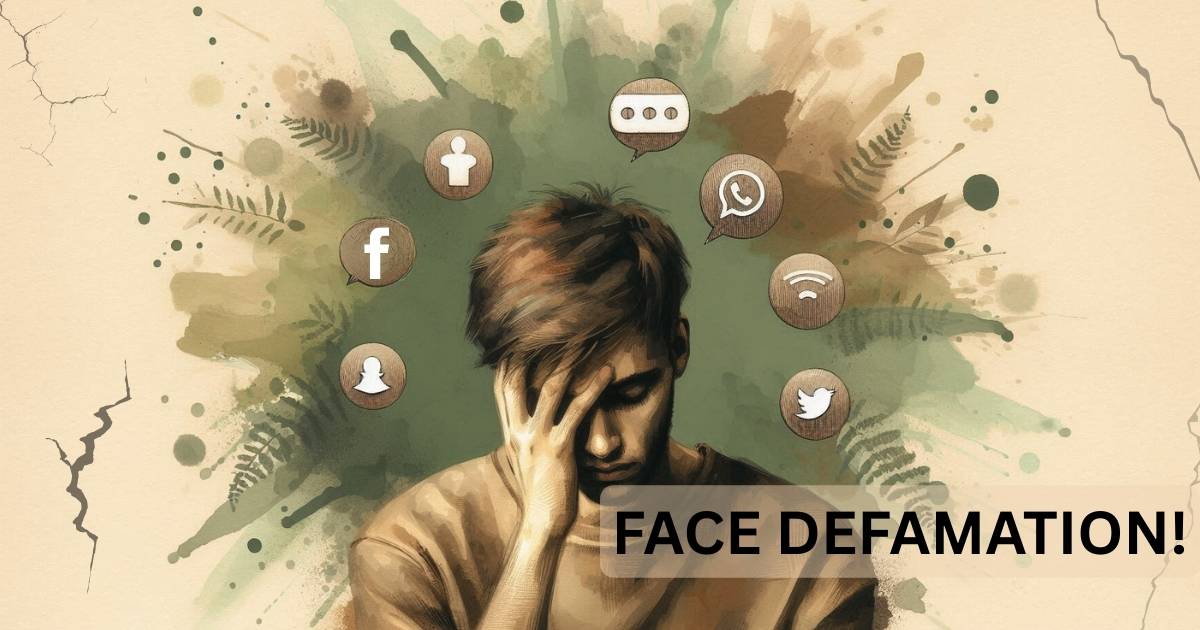· Cyber Law · 4 min read
How to Take Legal Action If Recovery Agents Defame You Online
Being defamed online by loan recovery agents? Learn how to legally fight back using IPC, IT Act, and civil remedies to protect your reputation and rights.

What Is Cyber Defamation?
In simple terms, cyber defamation is when someone uses digital platforms (like WhatsApp, Facebook, Instagram, etc.) to spread false, damaging content about you.
In legal terms:
Section 499 IPC defines defamation.
Section 500 IPC punishes it—up to 2 years in jail, a fine, or both.
When done digitally, Sections 66E & 67 of the IT Act can also apply.
Yes, Section 66A of the IT Act was scrapped (Shreya Singhal v. Union of India, 2015), but you still have strong legal tools to use against online defamation.
Common Tactics Used by Recovery Agents
Let’s not sugar-coat it. Some agents go way beyond calls:
Sending WhatsApp blasts to your contacts
Adding you to public groups and calling you a fraud or defaulter
Posting on social media, tagging you or your business
Sending emails to your workplace or clients
If any of this sounds familiar, you’ve got more than enough to file a legal case.
Step 1: Collect the Right Evidence
Before you go to the police or court, you need to build your case. That starts with evidence.
Take screenshots (make sure timestamps and names are visible).
Use WhatsApp’s “Export Chat” feature to get verifiable chat logs.
Save any links, message IDs, or group info.
Ask a friend to witness or download the same messages for backup.
You’ll need a Section 65B certificate (your lawyer can help) to make this digital evidence admissible in court.
Don’t wait—preserve everything, even if it feels minor.
Step 2: File a Complaint
You’ve got two options:
Go to the Police
Visit your local police station or the Cyber Crime Cell. Make sure your FIR clearly mentions:
That it’s cyber defamation
How it’s damaged your reputation
What platform or method was used
Attach your evidence
Use the Online Portal
Go to: www.cybercrime.gov.in
This is the official cybercrime reporting portal by the Ministry of Home Affairs. You can file complaints here and upload evidence directly.
Important: If the recovery agent works for a bank or lending company, and you have proof they’re allowing or ignoring this behaviour, name the institution as a co-accused in your FIR.
Civil vs Criminal Defamation – Which One?
You can go either way—or both.
Criminal Defamation
Handled under IPC Sections 499 & 500
Focuses on punishing the person (fine, jail, or both)
The fastest way to apply pressure and stop the behaviour
Civil Defamation
You sue the person or company for damages (financial + reputational)
Slower, but it helps you recover money for what you’ve suffered
Doesn’t involve jail, but hurts them financially
💡 Pro tip: Filing both gives you leverage—criminal cases stop the defamation; civil cases get you compensated.
Court Decisions That Support You
You’re not the first person to experience this, and the courts are taking action against cyber defamation seriously.
Sanjay Kumar v. State of Haryana
The court stated that digital defamation can destroy reputations quicker than traditional media because of its reach.
Kalandi Charan Lenka v. State of Odisha
The victim got compensation for mental trauma and reputation loss—even though the content was deleted later.
Courts now recognise that recovery agents using digital platforms to shame borrowers is not “just part of the job”—it’s malicious, coercive, and illegal.
What to Do Now?
Here’s a quick action plan:
Collect and secure all evidence
Consult a lawyer—cyber or criminal law specialist
File an FIR with the police or cyber cell
Use cybercrime.gov.in to file online
Include the lender’s name if they enabled the agent
Start civil and/or criminal proceedings
Don’t wait—it gets harder to trace digital content over time
Final Note
Just because you took a loan doesn’t mean you give up your right to dignity. If recovery agents are dragging your name through digital mud, you don’t have to take it quietly. Indian law is slowly catching up with the dirty tricks being used in the name of recovery, and you can be one of the cases that set a precedent.
So no, this isn’t “normal.” It’s cyber defamation. And it’s time to hit back, legally.
For more expert insights on finance, please subscribe to our YouTube channel - Insights by ExpertPanel
FAQs
Q1. What is cyber defamation?
Cyber defamation is spreading false, damaging content about someone through digital platforms like WhatsApp, Facebook, or Instagram.
Q2. Is cyber defamation punishable in India?
Yes, under IPC Sections 499 & 500 and IT Act provisions, it can lead to jail, fines, or both.
Q3. Can I file a complaint online for cyber defamation?
Yes, complaints can be filed at cybercrime.gov.in with supporting evidence.
Q4. What evidence is needed for a cyber defamation case?
Screenshots, chat exports, message IDs, links, and a Section 65B certificate are required.
Q5. Can I take both civil and criminal action for cyber defamation?
Yes, you can pursue criminal action to stop defamation and civil action for compensation.
Also Read: cybersecurity-laws-digital-finance-india/


.CxoYk7z-.jpg)
